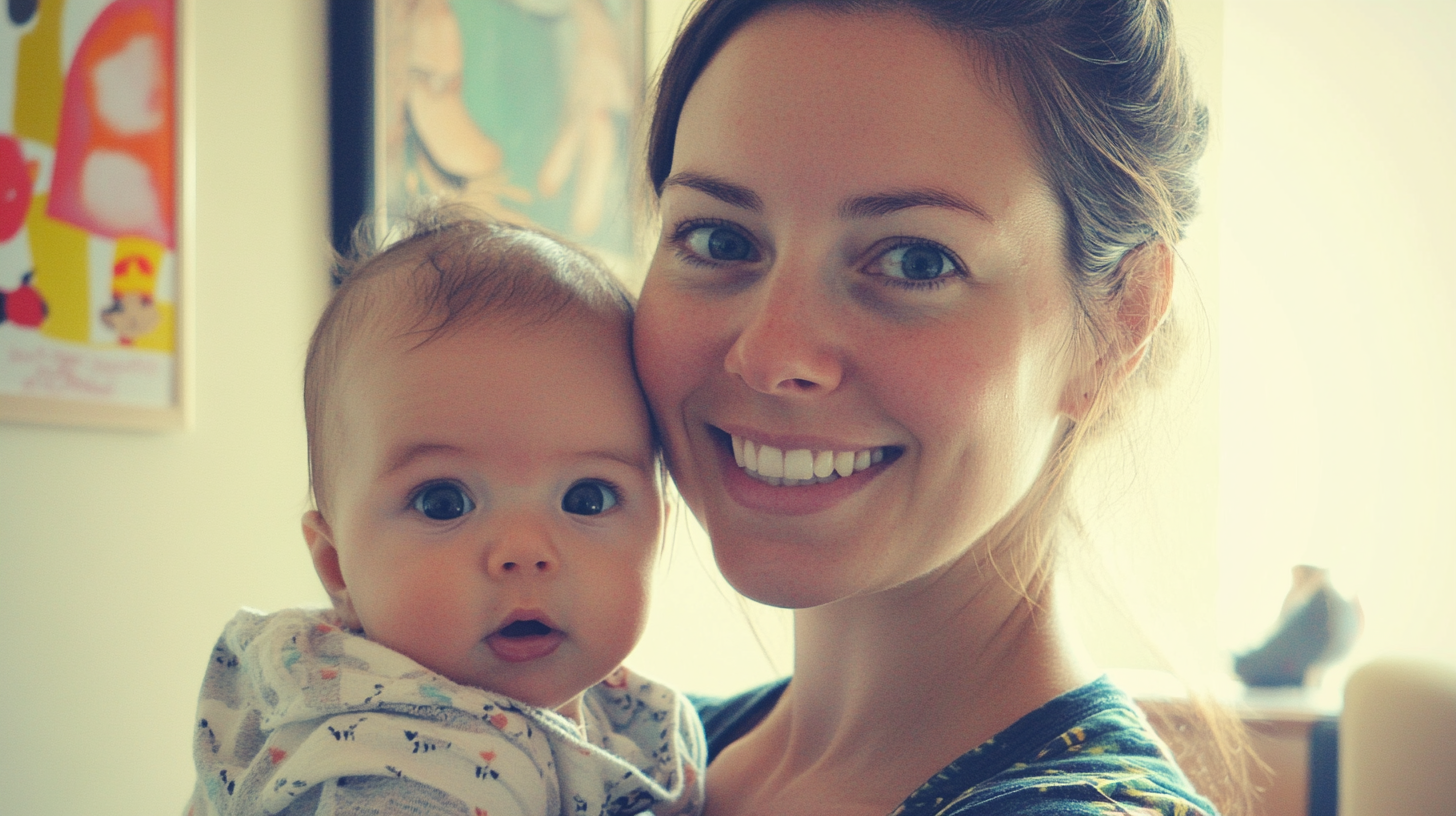Separation is never easy, especially when children are involved. Imagine a child’s world suddenly shifting—family routines disrupted, and a once-stable home now divided. Studies show that children of divorced parents can experience significant emotional upheaval, but with the right support, they can also build resilience and thrive. As a mother, your instinct is often to protect and nurture, even when your own world feels like it’s falling apart. In this challenging time, it’s crucial to focus not only on your well-being but also on creating a stable, loving environment for your children. Here’s a comprehensive guide on what to consider when parting ways with the father of your children, drawing from psychological insights, practical advice, and principles commonly emphasized in mandatory counseling sessions in Austria. These sessions provide valuable frameworks to help parents navigate the separation process while prioritizing their children’s well-being, making this advice relevant beyond Austria as well.
1. Prioritize Emotional Safety for Your Children
Children thrive on stability, and a separation can shake their sense of security. They may feel a loss of predictability in their daily lives, which can lead to heightened anxiety or fear. For example, younger children might become more clingy or regress in behaviors such as bedwetting, while older children could exhibit mood swings or withdrawal. Recognizing these signals and addressing them with reassurance and consistent routines helps rebuild their sense of safety. It’s essential to:
- Maintain Open Communication: Speak with your children about the separation in an age-appropriate way. Avoid overloading them with details but reassure them that both parents love them deeply and that they are not to blame.
- Validate Their Feelings: Children may feel sadness, anger, or confusion. Create a safe space for them to express their emotions without fear of judgment. Phrases like “It’s okay to feel sad” or “I’m here to listen” can go a long way.
- Avoid Using Them as Messengers: Keep communication with your ex-partner direct. Asking your children to relay messages places an unnecessary emotional burden on them.
2. Respect Your Child’s Right to Equal Love
Children need to feel that they can love both parents equally without conflict or guilt. Avoid making them feel as though they must choose sides.
- Protect Their Bond with Both Parents: Encourage a healthy relationship with the other parent, even if your own relationship has broken down. For example, you might co-attend important school events, such as parent-teacher meetings or recitals, to show a united front for your child.
- Shield Them from Negative Talk: Avoid making disparaging remarks about your ex-partner in front of the children. This protects their sense of security and emotional well-being.
3. Establish Consistent Routines
Stability in daily life is comforting for children. Work with your co-parent to:
- Maintain Regular Schedules: Consistency in meals, bedtime, and school routines can help children feel secure.
- Coordinate Parenting Styles: While you and your ex-partner may have different approaches, strive to align on core values such as discipline, education, and health.
- Preserve Familiar Rituals: Keeping rituals like bedtime stories, weekend breakfasts, or family traditions intact offers stability and comfort.
4. Shield Them from Conflict
Psychological research consistently shows that exposure to parental conflict can have long-term effects on children’s emotional well-being. To minimize harm:
- Argue Away from Children: Even if emotions run high, refrain from arguing or discussing contentious issues in front of your children.
- Be Mindful of Nonverbal Cues: Children are perceptive and can pick up on tension even without words. Practice calm and neutral body language during exchanges with your ex.
5. Address Their Hopes and Fears
Children often hold onto the hope that their parents will reunite. While these fantasies are natural, it’s important to gently guide them toward acceptance of the new reality.
- Acknowledge Their Feelings: Let them express their hopes without dismissing them, but provide gentle clarity about the situation.
- Support Their Transition: Give them time and space to adjust to changes, such as new living arrangements or routines.
6. Practice Self-Care
It’s easy to put your own needs last, but a resilient mom is better equipped to support her children. Consider:
- Seeking Support: Lean on friends, family, or a therapist to process your emotions and gain clarity.
- Engaging in Self-Compassion: Remind yourself that you are doing your best in a difficult situation. Take time for activities that replenish your energy and bring joy.
- Modeling Healthy Coping: Children learn by observing. Show them how to handle stress and sadness in healthy ways, such as through mindfulness, exercise, or creative outlets.
7. Foster a Healthy Co-Parenting Relationship
While you may no longer be partners, you remain co-parents. Building a respectful co-parenting dynamic benefits your children immensely.
- Set Clear Boundaries: Define roles and responsibilities early on to avoid misunderstandings.
- Focus on the Children: Keep conversations centered on the well-being and needs of your kids. Let their best interests guide your decisions.
- Practice Forgiveness: This doesn’t mean condoning past hurts but rather releasing the emotional weight to create a cooperative relationship.
8. Give Time for Acceptance of New Partners
Introducing new partners requires sensitivity and patience.
- Take It Slow: Ensure that your children have time to adjust to the separation before introducing new people into their lives.
- Respect Their Feelings: Allow them to express discomfort or curiosity without pressure to form immediate bonds.
- Encourage Openness: If they develop a positive relationship with a new partner, celebrate that while maintaining the importance of their relationship with the other parent.
9. Be Prepared for New Family Dynamics
Over time, new relationships may emerge. It’s vital to:
- Introduce Changes Gradually: If you or your ex-partner enter new relationships, introduce new partners to your children slowly and thoughtfully.
- Reassure Your Role: Children may fear being replaced. Reassure them of your unwavering love and support.
10. Acknowledge Societal Pressures and Break the Stigma
As mothers, we’re often scrutinized more than fathers during a separation. Society’s expectations can weigh heavily, but:
- Challenge Gendered Expectations: The notion that mothers must be all-sacrificing caregivers while fathers are held to lower emotional standards is outdated and harmful. Advocate for shared parenting responsibilities.
- Celebrate Your Strength: Divorce or separation does not define your worth. You are setting an example of resilience and self-respect for your children.
11. Seek Professional Guidance When Needed
Every family’s situation is unique, and sometimes, external support is invaluable.
- Family Therapy: Working with a therapist can help everyone navigate the emotional complexities of separation.
- Legal Support: Ensure you understand your rights and responsibilities, particularly regarding custody and financial arrangements.
12. Empower Your Children Through the Transition
Finally, focus on instilling a sense of resilience and adaptability in your children.
- Highlight Positive Changes: Emphasize opportunities for growth, such as new routines, homes, or family traditions.
- Encourage Problem-Solving Skills: Teach your children how to navigate challenges and find solutions, fostering confidence and independence.
Closing Thoughts
Separation is a deeply personal and often painful journey, but it can also be a transformative one. Many mothers discover newfound strength and independence, learning to set boundaries, pursue personal goals, and model resilience for their children. Additionally, family dynamics can strengthen as you and your children establish new traditions and deepen your bond through shared experiences of growth and healing. By focusing on emotional safety, stability, and healthy co-parenting, you create a foundation for your children to thrive. Remember, motherhood is not about perfection—it’s about showing up, learning, and growing alongside your children. You’ve got this.






0 Kommentare